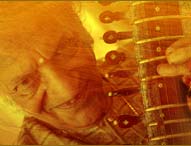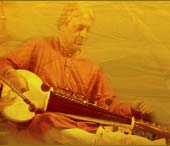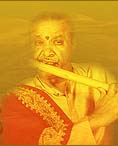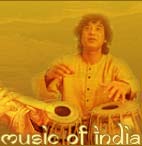Born On: May 4, 1767
Born In: Thiruvarur, Thanjavur
Died On: January 6, 1847
Career: Carnatic Composer
Nationality: Indian
Tyagaraja was a renowned music composer during the latter half of the 18th century and continues to remain an iconic figure in classical Carnatic music. With his life dedicated to composing devotional hymn, he is regarded nothing less than a saint who preached philosophy through them. His songs are eternal melodies that inspire devotion in the hearts of many. Tyagaraja's spartan way of life reflects on his unshakable faith in Lord Rama and true devotion for him. His music pieces give a deeper and philosophical meaning of our existence on earth. His life revolved around three aspects - spirituality, music, and godliness, which saw a perfect synchronization of these three characteristics. Tyagaraja's compositions continue to be glorified in every musical event. The Tyagaraja Aradhana is one of the most popular festivals held annually in Thiruvaiyaru to honor his works and life. The festival is a convergence of classical vocalists and instrumentalists across various cities in India.
Early Life
Tyagaraja was born as Kakarla Tyagabrahmam in Tiruvarur town, Thanjavur district, Tamil Nadu. He was born in a traditional Hindu Brahmin family to Kakarla Ramabrahmam and Sitamma, who encouraged him to sing devotional songs. He was born at his maternal grandfather, Giriraja Kavi's house, a renowned court poet and composer for the king of Thanjavur. Many others believe that he followed the footsteps of his maternal grandfather to pursue his interest in music.
Career
Tyagaraja began his musical career with training under Sonti Venkataramanayya, an eminent scholar during that period. During his formal training, he never emphasized on the technical aspect of classical music but, instead, saw it as a means to experience spiritual bliss. His attempts at singing were purely devotional and without any other materialistic reason behind. By the time he reached his teenage years, he had already began to show a talent for composing music for his first song "Namo Namo Raghavayya", a raga which is said to be extolled on the walls of his house. Few years later when he completed his formal training from his guru, he was invited again by Sonti Venkataramanayya for performing live. Tyagaraja honored the invite and performed for his guru by singing "Endaro Mahaanubhavulu", the fifth musical piece out of the five pancharatna krithis. Venkataramanayya was impressed with his talent and recommended him to the King to join his court. The king's invitation was sent to Tyagaraja but he refused to be a court singer, which, in turn, led to the composition of the popular kirthan 'Nidhi Chala Sukhama'. His elder brother was highly infuriated by his younger brother's behavior and threw Lord Rama's statue in River Kaveri that Tyagaraja used to worship. Tyagaraja was deeply affected by this, which proved to be the turning point of his compositions of several devotional songs. He was highly distressed and left home to seek inner peace. He visited several pilgrimage sites dedicated to Lord Rama and led an extremely austere way of living by giving up worldly pleasures, dedicating his time in singing and compiling devotional songs on Lord Rama. On the course of his journey, Tyagaraja was often followed by many of his disciples who noted down his compositions on palm leaves. He is said to have sung about 24,000 songs out of which only 700 exist today as most of the palm leaves, on which they were written, perished in time. Apart from songs, he also created two popular musical dramas, titled "Prahalada Bhakti Vijayam" and "Nauka Charitam". Today, however, his songs are celebrated for the Carnatic music in them and continue to be sung in many concerts across the world.
Legacy
With thousands of devotional musical pieces that Tyagaraja composed, it would not be an exaggeration to state that he was a musical genius who laid down the foundation of Carnatic music in India. There are several musical festivals that are conducted around the globe but the most popular one is Tyagaraja Aradhana, conducted at Thiruvaiyaru between the months of January and February every year. The festival displays hundreds of vocalists and instrumentalists from different parts of South India. Two films have been made on his life - one in 1946 by popular Chittor V. Nagaiah, and the second one in 1981 by Bapu, also referred as Ramana.
Personal Life & Death
When Tyagaraja was 18, he was married to Parvatamma in 1784, but she died in 1789. Later, in 1790, he married her sister, Kamalamba. The couple had a daughter named Sitalakshmi. Tyagaraja left his mortal corpse on January 6, 1847 but not much is known about the final days of his life.
Timeline
1767: Born on May 4 in Tiruvarur town, Thanjavur, Tamil Nadu
1784: Married to Parvatamma
1789: Parvatamma passed away
1790: Married to Sitalakshmi
1847: Died on January 6
1941: Tyagaraja Aradhana was established.






